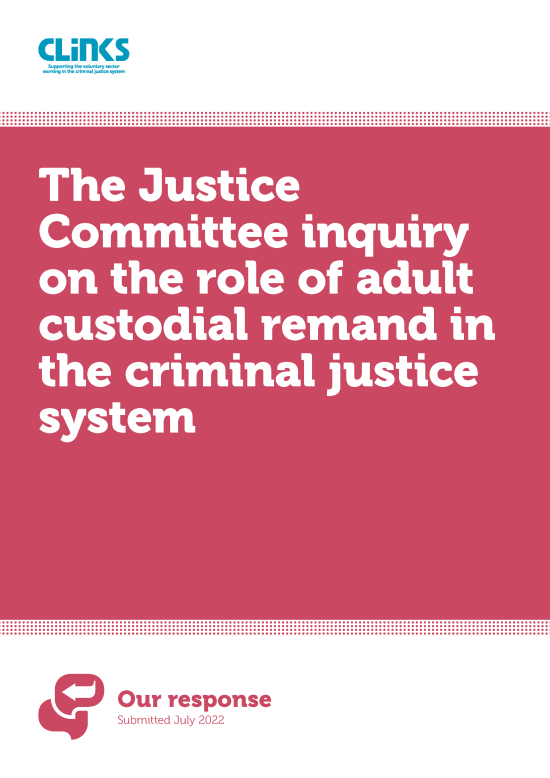
Clinks response: The Justice Committee inquiry on the role of adult custodial remand in the criminal justice system
Clinks submitted evidence to the Justice Committee's inquiry on the role of adult custodial remand in the criminal justice system. This response is informed by consultation with the voluntary sector working in criminal justice in England and Wales as well as our experience of supporting the voluntary sector working in prisons and the community and those delivering resettlement support. We welcome the opportunity to respond to this inquiry and welcome the Committee’s interest in the use of custodial remand for adults and have responded to the questions relevant to our areas of work.
Access to both statutory and voluntary services in prison are usually driven by release date, which neither untried nor unsentenced prisoners have. This means remand prisoners may be included as a matter of policy but are largely excluded in practice. On release, there is no support for prisoners who are unconvicted. Those who are convicted may be able to access support depending on the type and length of sentence handed down. We are aware that HMPPS are considering how best to ensure services are available to those on remand. We welcome this but caution that it must be supported by funding otherwise services will simply be spread more thinly.
In our response we make four key recommendations:
- The Ministry of Justice publish a comprehensive needs assessment of people in prison, including but not limited to those on remand.
- The Committee explore the reasons for differences in custodial remand for those with protected characteristics, in particular women and racially minoritised people.
- The Ministry of Justice consider the learning from reviews of disproportionality and the use of custodial remand in the children and young people’s estate is incorporated into work to address these issues for the adult population.
- The Ministry of Justice consider how the commissioning of services directed towards the policy priority of reducing reoffending might unintentionally preclude support for those on remand.